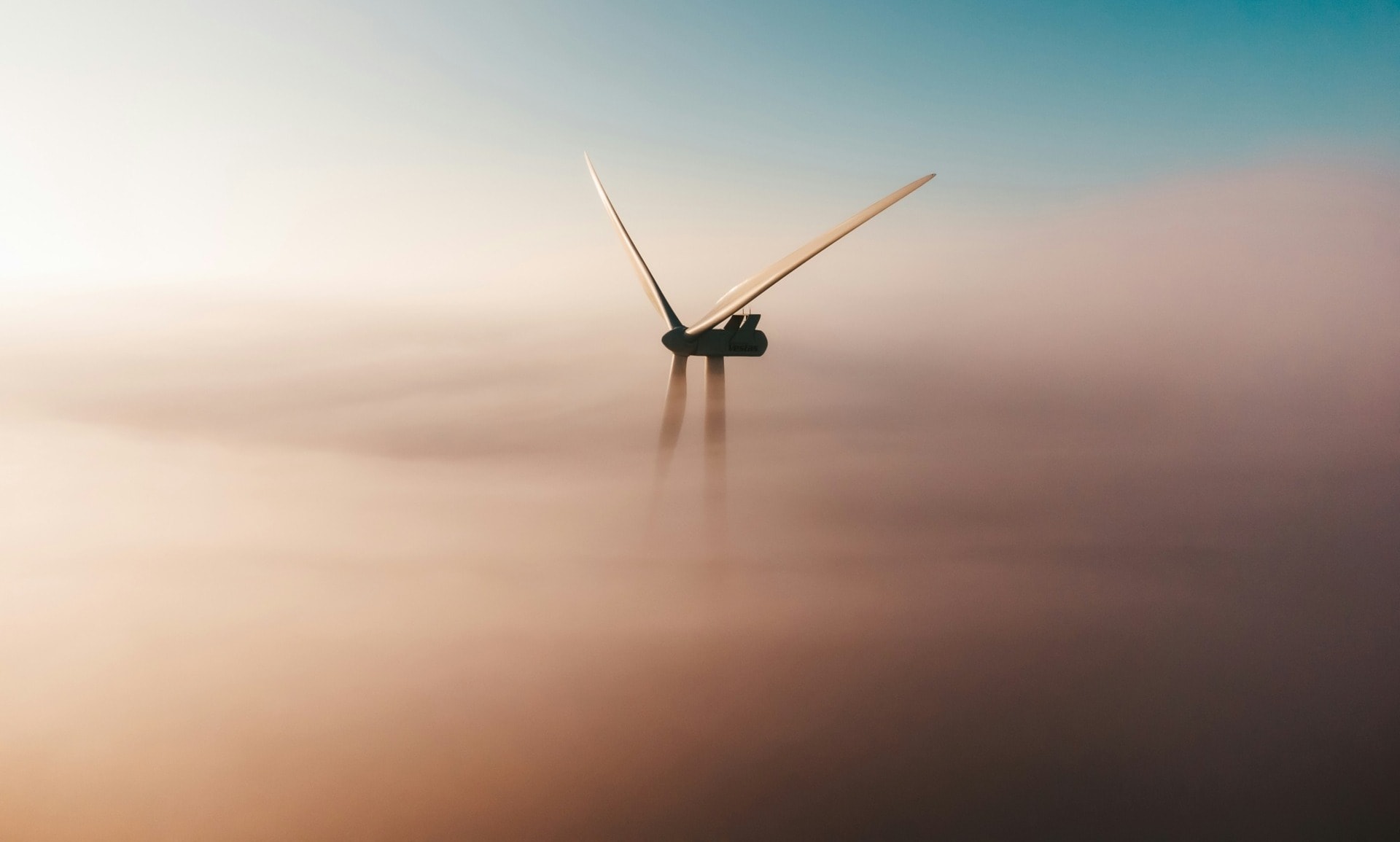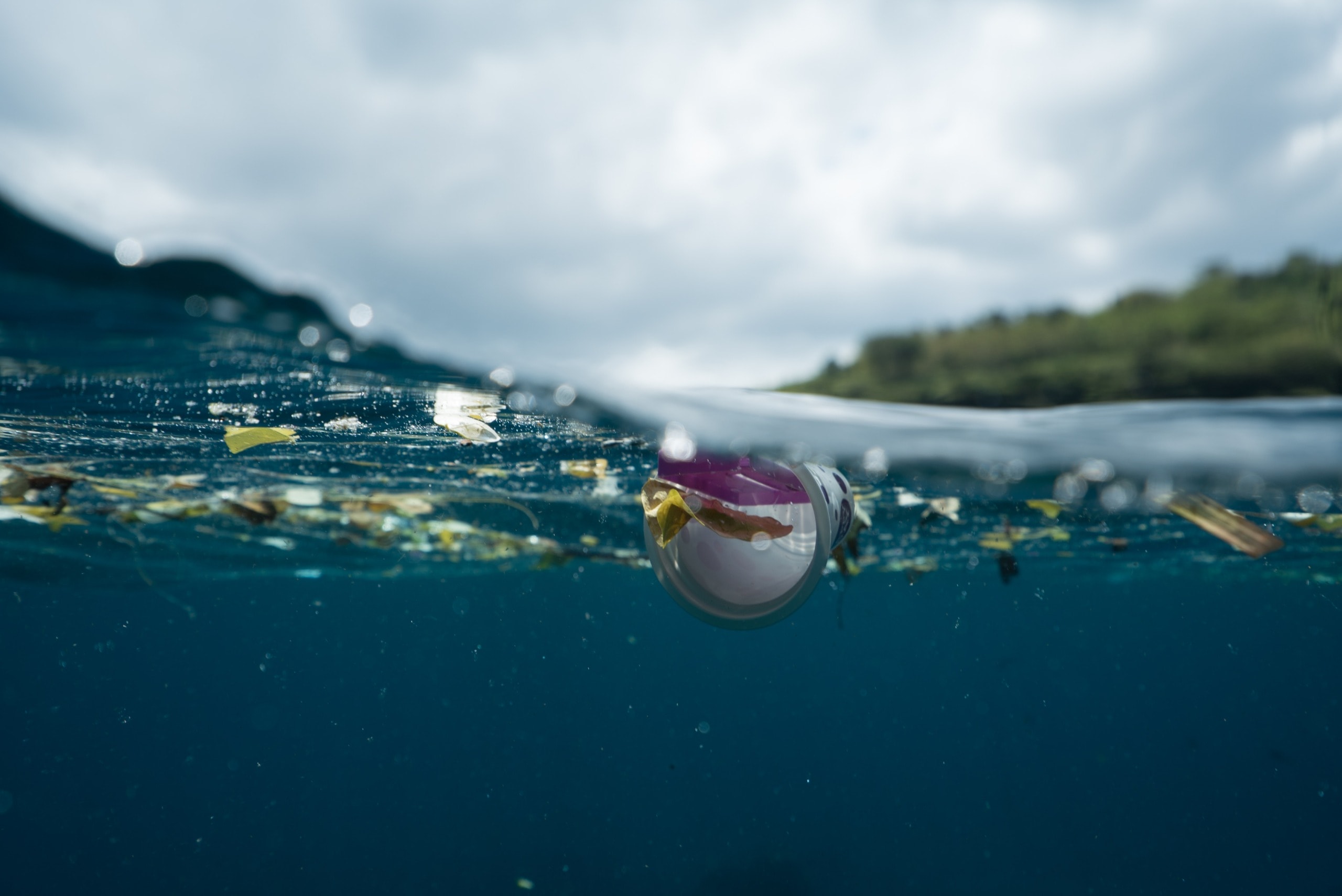This week, a cargo ship equipped with two newly-developed giant solid sails has begun its inaugural voyage on the open water — a roughly six week-long voyage from China to Brazil — powered by the wind.
This wind-powered ship, known as the Pyxis Ocean — a Mitsubishi Corporation-owned bulk carrier chartered by global shipping company Cargill — has been retrofitted with two “WindWings” measuring up to 37.5m high on its deck “to harness the power of wind.”
“WindWings” are an innovative new solid sail technology designed by British marine engineering consultancy, BAR Technologies, developed in partnership with green maritime technology company, Yara Marine Technologies.
The wind technology project was also co-funded by the European Union as part of its Horizon 2020 initiative, CHEK.
This is the first cargo ship to be retrofitted with two WindWings, and its maiden voyage aims to help chart the path towards decarbonisation of the maritime industry.
At present, the shipping industry is estimated to be responsible for around 2.8% of all global greenhouse gas (GHG) emissions, with over 80% of the volume of international trade transported by sea.
Using wind-assisted propulsion, equipping cargo ships with theses solid wing sails could help the vessels cut fuel consumption and emissions — bringing both environmental and economic benefits by reducing carbon footprints and costs.
“Produced by industrialization partner Yara Marine Technologies, they are expected to generate average fuel savings of up to 30 percent on new build vessels, which could be even higher if used in combination with alternative fuels,” states Cargill’s press release.
Some parallels have also been drawn between this innovative new wind power technology and the traditional sailing methods of the past.
John Cooper, CEO of BAR Technologies and former Chief Business Officer at Mclaren Racing in Formula One, told the BBC:
“The engineers always hate it, but I always say it’s back to the future […] The invention of big combustion engines destroyed the trade routes and the sailing routes and now we’re going to try to reverse that trend, just a bit.”
Cutting Shipping Emissions With Cutting-Edge Wind Technology
Wind is a free, abundant and environmentally-friendly energy source. BarTech’s CEO previously explained:
“Wind is a near marginal cost free fuel and the opportunity for reducing emissions, alongside significant efficiency gains in vessel operating costs, is substantial. We’ve invested in our unique wind sail technology to provide vessel owners and operators with an opportunity to realize these efficiencies.”
BAR Technologies is a spin-off from Ben Ainslie Racing (BAR) — the sailing team formed by Sir Ben Ainslie (a world-renowned Olympic and World Champion sailor) — and is a simulation-driven consultancy which has developed a range of innovative marine engineering solutions since its formation in 2016.
In 2020, BarTech partnered with Cargill in an effort to use wind propulsion technology to reduce the CO2 emissions of commercial shipping. And in 2021, to help bring their WindWings technology to the global shipping industry, BarTech partnered with Yara Marine Technologies; a company committed to protecting the planet with emissions reduction technologies in the maritime sector.
Related Articles: Levante’s Foldable Solar Panel: The Perfect Companion for Outdoor Adventures | PortXL, Accelerating Sustainability And Digitalization In The Maritime Industry
The Pyxis Ocean is the first cargo ship to be retrofitted with two WindWings, and the vessel’s maiden journey will now test the new technology on the open waters, with its performance being closely monitored to inform further improvements to the sails and how it might be scaled-up.
The ultimate aim is to adopt WindWings across Cargill’s fleet — as well as hopefully throughout the wider industry.
Another shipping company, Berge Bulk, has also already partnered with BarTech and Yara Marine to equip its Berge Olympus cargo ship with WindWings — “leading the dry bulk market in decarbonisation.”
Greening the Global Fleet
The international shipping industry is currently tasked with reducing CO2 emissions by at least 40% by 2030 progressing towards 70% by 2050, per transport work, on average, compared with 2008.
What’s more, total annual GHG emissions from the sector are also targetted at being reduced by at least 50% by 2050 in comparison with 2008.
This poses a significant challenge to the industry. BarTech stated last year: “At five years old the Pyxis Ocean, an 80,962DWT bulk carrier, keenly represents the challenges the energy transition poses to the global fleet.”
The company explains that with over half of the world’s bulk carriers (as well as over half of all ships on the water) being vessels up to nine years old, the shipping sector urgently needs ways of retrofitting existing ships to decarbonise them, alongside the ongoing development of green fuels for the future.
“The pressure is on the ship owning and chartering community to take proactive and material action to tackle the immediate and uprising challenges towards the energy transition on its existing vessels, and fast,” said the General Manager of Mitsubishi Corporation’s Ship Deptartment, Takafumi Oka.
What’s more, from January 1, 2023, new regulations came into force requiring all ships to measure energy efficiency and report annual carbon emissions via the Energy Efficiency Existing Ship Index (EEXI) and Carbon Intensity Indicator (CII) respectively.
Saving 1.5 tonnes of fuel and 4.7 tonnes of CO2 per WindWing per day (on an average global route), BarTech’s cutting-edge wind power technology could help.
“The maritime industry is on a journey to decarbonize—it’s not an easy one, but it is an exciting one,” stated the President of Cargill’s Ocean transportation business, Jan Dieleman, adding:
“At Cargill we have a responsibility to pioneer decarbonizing solutions across all our supply chains to meet our customer’s needs and the needs of the planet. A technology like WindWings doesn’t come without risk, and as an industry leader — in partnership with visionary shipowner Mitsubishi Corporation — we are not afraid to invest, take those risks and be transparent with our learnings to help our partners in maritime transition to a more sustainable future.”
Editor’s Note: The opinions expressed here by the authors are their own, not those of Impakter.com — In the Featured Photo: Aerial view of cargo ship sailing. Featured Photo Credit: Venti Views














